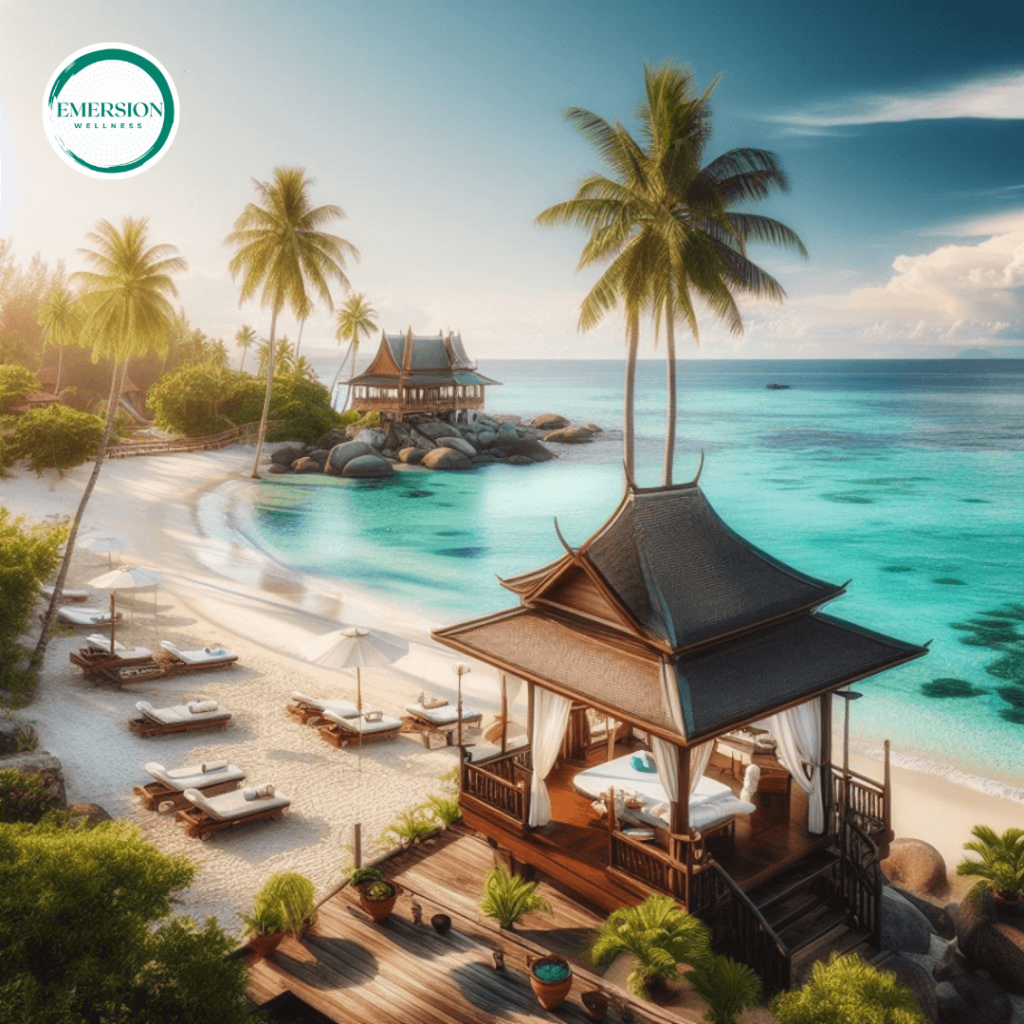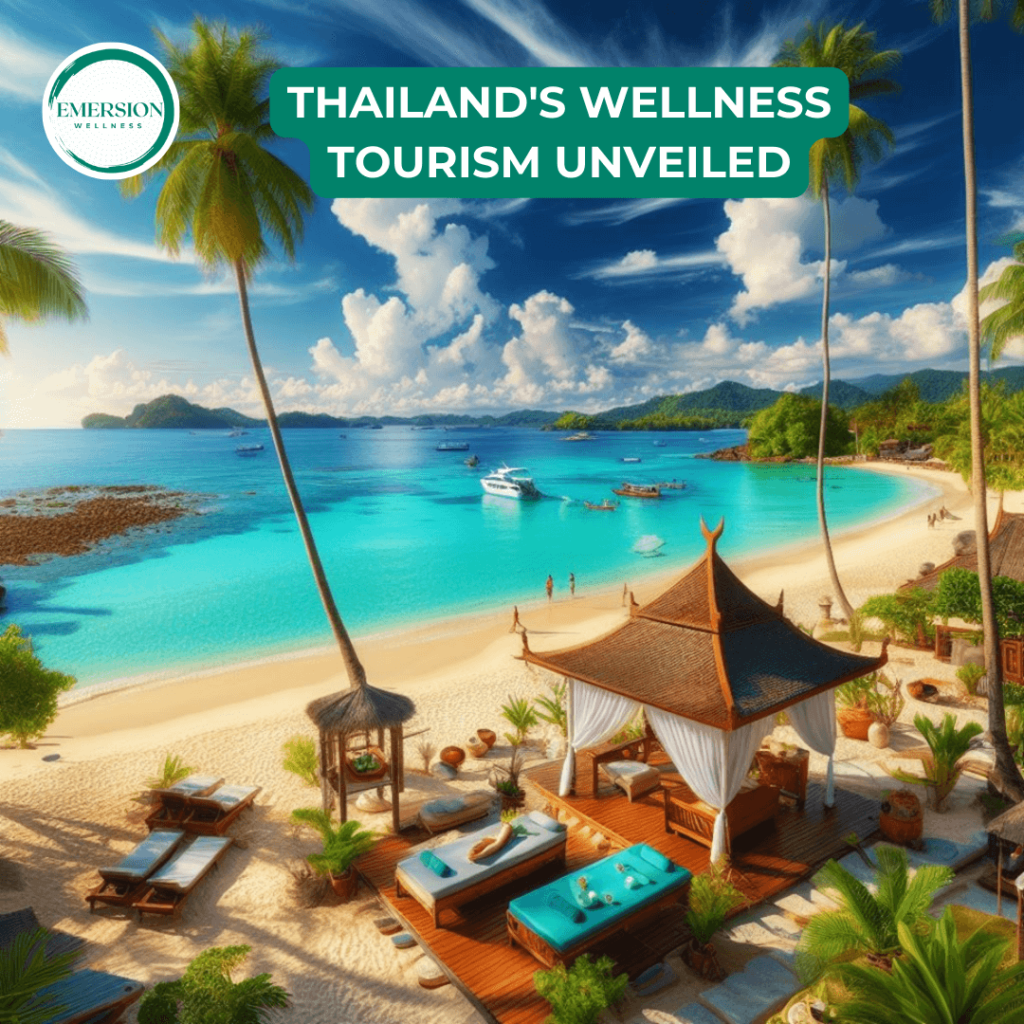Known for its idyllic beaches, Buddhist temples, and vibrant cities, Thailand has rapidly emerged as Asia's premier wellness tourism destination.
With wellness travel expanding twice as fast as overall tourism worldwide, Thailand is strategically capitalizing on this megatrend to drive revenues. Understanding the nation's flourishing wellness offerings presents a major opportunity for hoteliers.
Let's dive into the factors fueling Thailand's rise as a leading wellness getaway and how you can prosper.
Table of Contents
Defining Thailand's Wellness Tourism
First, what exactly is wellness tourism? It covers travel motivated wholly or partly by maintaining or enhancing one's health and well-being. This spans physical, mental, social, spiritual, environmental, and occupational dimensions.
Wellness tourists seek to proactively preserve their health through experiences like fitness, healthy cuisine, meditation, spa treatments, yoga retreats, preventative services, and more. It's far more immersive than just a trip to the gym or an occasional massage.
This purpose-driven sector has expanded to a $639 billion global market, growing twice as fast as overall tourism. Thailand aims to capture a sizable share.
Thailand's Wellness Tourism & Natural Assets
With its tranquil tropical setting, Thailand possesses inherent advantages for wellness tourism. Features like pristine beaches, lush jungles, organic farms, Buddhist temples, and mineral hot springs provide natural settings for practices like meditation, yoga, hiking, watersports, and healing treatments.
The Thai people's deep spirituality and history of healing modalities also contribute to an authentic atmosphere of health and tranquility. Thailand offers true insider access to ancient wellness wisdom native to the region. For travelers, this cultural immersion enhances the journey.
An Existing Reputation as a Wellness Hub
Thailand earned the nickname "Land of Smiles" thanks to the pleasant nature of its citizens. It's also known as a Land of Wellness for good reason.
The country has been a retreat destination since the 1960s, pioneered by Palm Springs developers. Early on, Thailand gained renown for destination spas like Chiva-Som on the Gulf of Thailand.
Over subsequent decades, its world-class wellness offerings expanded across lavish wellness resorts, yoga centers, detox programs, medical clinics, and more. Today, Thailand enjoys an established reputation globally as a premier wellness getaway.
Government Initiatives to Lead the Market in Thailand's Wellness Tourism
Rather than rest on its laurels, the Thailand government aims to elevate the country further as the wellness capital of Asia.
Strategic plans are in place to train more wellness practitioners, enhance standards, partner across sectors, build cutting-edge facilities leveraging medical expertise, and promote Thailand's myriad health-enhancing experiences to attract wellness-minded visitors. With coordinated support, the country is equipped to lead this lucrative niche.

Surging Wellness Traveler Arrivals to Thailand's Wellness Tourism
Thailand welcomed 39 million foreign visitors in 2019, up from 32 million in 2015. Surveys indicate over 10% of arrivals now identify as wellness tourists, drawn explicitly for wellbeing-enhancing experiences.
Following Covid-related declines in 2020, arrivals are rebounding swiftly as pent-up demand is unleashed. Wellness travelers' higher spending potential brings substantial economic benefits.
Domestic demand is rising fast, too as locals embrace wellness. With proactive policies stimulating growth, Thailand aims to welcome 60 million wellness arrivals by 2037.
Thailand's Diversity of Wellness Offerings
Unlike some destinations rooted in a single specialty like hot springs, Thailand impresses visitors with extremely diversified options spanning:
- Lavish beachside wellness resorts like Kamalaya Koh Samui offer personalized programs of spa therapies, fitness, nutrition, and more.
- Intimate wellness sanctuaries like The Ozone Khao Yai fusing Reiki, life coaching, and ozone therapies within a nature-immersed setting.
- Prestigious medical hospitals like Bangkok's Bumrungrad International pair diagnostics with holistic healing.
- Sacred destinations like Golden Triangle retreats combine meditation with ethical elephant experiences.
- Fitness boot camps are built around Thailand's stunning landscapes and world-class training facilities.
This variety caters to every traveler's specific wellness aspirations.
Catering to Diverse Wellness Traveler Types
With broad offerings, Thailand attracts various segments seeking health-enhancing getaways:
- Couples: Seeking romantic retreats blending spa pampering with Thai cuisine cooking classes, temple tours, and more.
- Solo Women Travelers: Prioritizing self-care through yoga, massage, and life coaching.
- Groups of Friends/Families: Bonding through group fitness, healing arts, and exploring outdoors.
- Corporate: Hosting wellness incentive trips engaging every employee.
- Men: Partaking in fitness boot camps and sports like Muay Thai boxing.
- Baby Boomers: Undergoing medical screenings and anti-aging treatments.
This diversified demand presents hoteliers with tremendous potential to cater to niches.
Wellness Tourism Growth Projections
As one of the most resilient travel sectors, wellness has emerged from COVID-19 more mainstream than ever. Thailand is perfectly positioned to ride this wave.
With coordinated efforts underway, the country aims to attract 100 million wellness arrivals by 2037. This will further solidify its stature as the preeminent wellness tourism capital in Asia and beyond.
For hoteliers, now is the moment to align your property around this flourishing opportunity. Let's discuss how you can optimize every touchpoint to capture booming wellness traveler demand.
FAQs
-
What are the most popular wellness activities for tourists in Thailand?
Top activities span Thai massage, yoga, meditation, Muay Thai boxing, hiking, cycling, swimming, spa treatments, fitness boot camps, cooking classes leveraging local organic produce, and more.
-
Which Thai regions see the most wellness tourism?
Thailand's major wellness tourism magnets are Phuket, Koh Samui, and Chiang Mai. But emerging destinations like Pattaya, Hua Hin, and Koh Phangan are growing fast, too, amidst massive development.
-
What's propelling Thailand to lead Asia's wellness tourism industry?
Key drivers include Thailand's inherent wellness assets like tropical settings, ancient healing arts, and spiritual sites, coordinated government support, established reputation as a wellness hub, and diverse world-class offerings catering to every traveler profile.
-
What types of wellness travelers frequent Thailand?
Thailand attracts everyone from couples and families seeking retreats to solo female travelers on self-care journeys to corporate groups on wellness incentive trips. The breadth of offerings suits all.
-
How does wellness tourism benefit Thailand's economy and communities?
Direct revenues plus multiplier effects boost GDP growth and job creation. Wellness travelers' high spending also infuses income locally. New facilities increase health access. Sustainability principles spreading through the industry support environmental and social impacts.
-
What emerging wellness traveler trends should hoteliers know?
Keep an eye on rising modalities like forest bathing, breathwork, sound healing, cannabis wellness, wearable tech, metabolic health, DNA-based nutrition, and more. Also cater to Gen Z and Millennials, driving future growth.
-
How can hotels incorporate Thai wellness principles into their programming?
Train staff in Thai massage, meditation, and yoga. Offer indigenous spa treatments. Host visiting wellness practitioners for retreats. Infuse organic local cuisine across dining. Share the cultural significance of practices through educational materials.
-
What precautions are needed when marketing wellness in Thailand?
Avoid inappropriate use of religious icons. Ensure imagery is tasteful. Partner respectfully with local practitioners versus co-opting traditions. Have Thai staff guide guests in cultural elements sensitively. Focus on authenticity over exoticization.
-
How can hotels participate in Thailand's coordinated wellness tourism efforts?
Engage with national and regional wellness associations. Seek health/sustainability certifications to bolster credibility. Participate in multi-stakeholder destination marketing campaigns. Help shape policies as an industry leader. Share best practices advancing Thailand's strategy.
-
What mistakes should be avoided in developing wellness offerings?
Prevent superficial programming lacking substance or cultural understanding. Maintain high standards for practitioners. Rigorously evaluate and refine offerings based on guest feedback. Don't sacrifice personalization and intimacy as you scale. Keep pricing aligned to value. And avoid detracting from Thailand's essence.
Get In Touch for more information
Also Read: Tips to Sell Your Business Hotel Room to Corporate Travelers

I'm Nathan Baws, a nutrition nerd, exercise and weight loss expert, and an unwavering advocate for good health. As the founder of Emersion Wellness, I'm passionate about crafting Seamless Weight Loss Programs to supercharge hotel revenue and transform lives. We've pioneered the World's First Plug & Play Weight Loss Programs for top hotels and resorts, sparking a wellness revolution. Beyond my professional journey, you'll often find me hiking, swimming, and riding the waves, embracing every moment in nature. Join me on this exhilarating journey towards diet, health and wellness.

